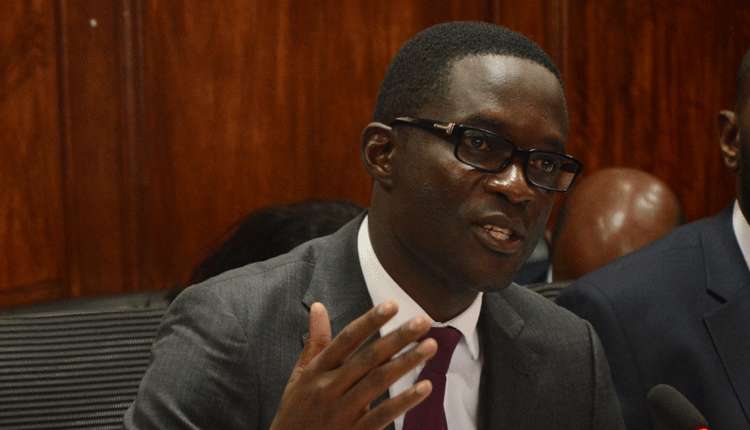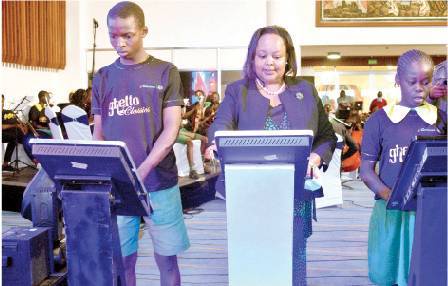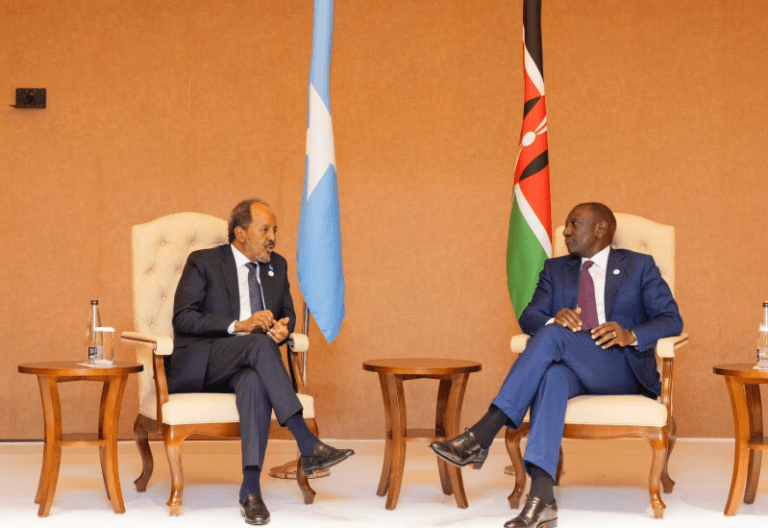Senate revives Safaricom’s market dominance debate

Hillary Mageka @hillarymageka
Senators have reignited the push to have giant communications company, Safaricom Plc declared a dominant player even as the country’s most profitable telco reels from the shocks of the global coronavirus pandemic.
They have also suggested the telco, which posted a 6 per cent drop in half-year profit, be split into two so that on the one hand, mobile telephony service be regulated by Communication Authority of Kenya (CA) while M-Pesa division is checked by the Central Bank of Kenya (CBK).
The Senators are relying on the controversial Analysys Mason Kenya market study report which concluded that Safaricom held more than 70 per cent of the market share in terms of subscribers, minutes and revenue.
It also found out that Safaricom was the leading telco in terms of the mobile money market with a share of 66 per cent.
In their latest move, the lawmakers claim Safaricom’s dominance allows it to control up to 60 per cent data bundles, calls and Short Message Service (SMS) markets.
Besides, the legislators opined that due to this dominance, smaller tecos such as Telkom and Airtel owe Safaricom debt running into billions of shillings.
Nominated Senator Petronilla Were revived the market dominance debate last week when she by sought a statement from Standing Committee on Information and Technology (ICT) regarding the abuse of dominance by Safaricom.
She wants the committee chaired by Baringo Senator Gideon Moi to outline measures put in place to ensure there is a level playing field for players in the telcoms sector.
“State measures, if any, to prevail upon Safaricom Plc to offer access of its transmission sites to its competitors in areas where the competitors have little or no coverage because of the dominant status that they have achieved,” Senator Were’s statement reads in part.
Mobile money
Also, the nominated lawmaker wants the nine member panel to determine if CBK, through National Treasury, can strengthen mobile money inter-operability and foster financial inclusivity in the country by implementing agent and merchant inter-operability – allowing own customers to transact at merchants “owned” by other providers.
“The market is not competitive any more. The other operators should be allowed to operate, by giving the dominant operator its right, but also allowing the others to operate, and allow innovation in the country,” Senator Were said in an interview with the Business Hub.
“When we do not check this abuse, then we are killing the industry and innovations even from the rest of Kenyans,” she added.
Muranga’s Irungu Kang’ata said while Kenya must strive to achieve a perfect market competitive economy, however, no participant ought to be a price fixer.
He argued that each participant whether a buyer or a seller must be a price taker, which means no single entity should dictate market prices. Kang’ata said because of the dominance, Safaricom is owed billions of shillings by smaller telecommunication companies.
“The effect is that the companies will forever owe billions of shillings to Safaricom and will never grow. This is not a good economic situation,” the Senator said, insisting that Safaricom should be declared a dominant player.
Kitui Senator Enock Wambua asked CA to declare whether Safaricom is still entirely a communication company or a banking institution, suggesting that Safaricom be split into two; Safaricom, the communication company and the M-Pesa division.
That way, he said: “We will infuse sanity in this country and attract more players in the industry.”
“I hear many people say – I have reasons to believe it is true – that Safaricom has become more powerful than the regulator. It is both financially and logistically too strong for CA,” Wambua added.
However, nominated Senator Abshiro Halakhe asked Kenyans not to punish companies that have invested heavily in innovation and in providing services to the consumers of this country.
“In terms of inter-operability or business functions, be it data, voice calls or money transfer, big investments by Safaricom have gone into that,” she said, adding that this is not the first time the question of dominance has come to Parliament.
Halakhe, who is the vice-chair of the Committee on ICT said: “For us, as legislators, to seek to influence the market forces, we will be doing a disservice to this country.”
The UK-based Analysys Mason was contracted in 2016 by CA, to analyse the competitive nature of the local telecommunications market.
Industry stakeholders
After collecting data, conducting a technical assessment, reviewing legislation, and meeting industry stakeholders, the firm recommended in leaked findings that the dominant operator’s voice and data services be split from its mobile money platform M-Pesa.
To ensure fairness, the firm also recommended the implementation of mobile money interoperability across networks by the end of 2017.
However, during an interview last year, Safaricom chair Michael Joseph downplayed the push to separate M-Pesa from the parent company and defended the telco from dominance claims.
He said separating the two entities amounts to “punishment” as their systems complement each other even as he dismissed claims of Safaricom’s dominance of voice, data and mobile money markets.
Joseph was reacting to proposals in the Kenya Information and Communications (Amendment) Bill, 2019 seeking to have telcos split core their businesses from other ventures, and seek approvals for each.
He said Safaricom started business in the country six months after its then main competitor Kencell had commenced operations in the country.
On why they are big, Joseph said: “We have invested more than our nearest competitors. We have invested enormous amount of money in our network, in our agent network, that is why we are successful,” Joseph said.














